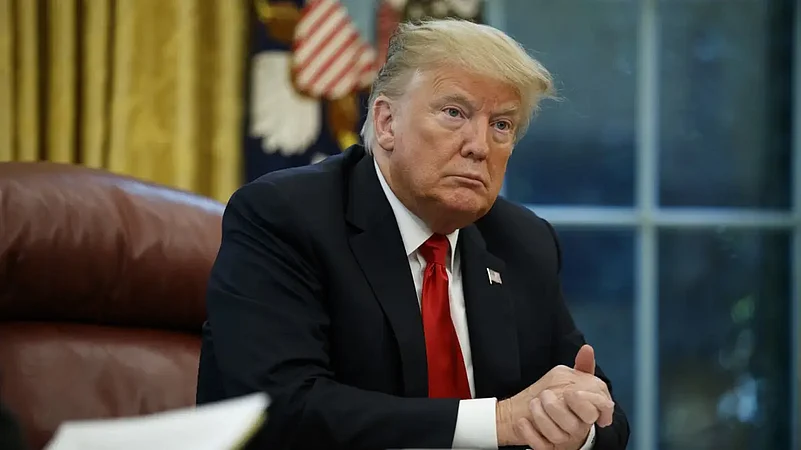In the latest installment of the tariff saga, US President Donald Trump on April 9 announced a 90-day reprieve on several reciprocal tariffs on trade partners. While the constant back-and-forth until this point had markets on edge, the latest move has sparked enthusiasm across financial markets.
However, recoveries in April have remained transient, as uncertainty over what comes next lingers. Amid this unpredictability, investors are keen to spot ways to protect their capital while also looking for buying opportunities that make full use of the market’s downturn. The market now is a stock picker’s one, where valuations come down, making room for cashing in on strong future growth opportunities, if investors manage to make the right choice.
While the US allowed some grace time for trade partners to hold negotiations, a key concern is the worsening US-China relationship. Even as other nations received an exception for three months, China was slapped with an even higher tariff of 125%. This was in response to the country’s decision to retaliate with levies worth 84% on US imports.
Adding to this are fears over what tariffs will eventually be officialised and how other countries will respond. Like China, the European Union (EU) has imposed levies of up to 25% on US goods worth around €20bn in response to duties on steel and aluminium. The global economic outlook could worsen if more countries take retaliatory actions, resulting in a multi-front global trade war.
What Should Indian Investors Do?
While the global economic landscape remains under stress, the Indian economy is seeing improving domestic macro conditions as a major tailwind. Analysts at financial services firm Axis Securities believe that macroeconomic risks such as trade policy uncertainty, the risk of a global market slowdown due to reciprocal tariffs and recessionary concerns will continue to challenge market direction in the near-term.
To sail through this, the brokerage sees the risk-reward balance in favour of domestic-facing sectors, largely due to minimal impact from reciprocal tariffs. Another pocket of resilience can be seen in select large-cap names. “We believe that in large-cap stocks, ‘quality’ stocks, monopolies, market leaders in their respective domains and domestically focused sectors and stocks may outperform the market in the near-term,” Axis Securities wrote.
As for buying opportunities in the broader market, financial services company Kotak Institutional Equities has named two key parameters to zero down on quality stocks: a strong business model and good corporate governance. “As the broader market valuations are rich, investors could use market correction as an opportunity to add quality stocks from a long-term investment perspective,” they said.
Meanwhile, global investment firm HSBC pointed towards the need to focus on the upcoming earnings season, rather than tariffs, to hunt down quality stocks. The firm suggested investors look for stocks with high profitability of offering earnings visibility, for example, due to structural growth drivers.
HSBC also highlighted its top five picks where the growth potential is strong. These include index heavyweight Reliance Industries, ICICI Bank, TVS Motor, Shriram Finance, and Adani Ports and SEZ.
Each of these businesses enjoys strong structural growth drivers and occupies top spots in their respective sectors. For Reliance Industries, catalysts ranging from a retail turnaround, the start of a new energy business and fresh momentum in digital to its current valuations provide an attractive entry point.
On the other hand, HSBC expects TVS Motors to benefit from the recovery in rural demand in the short-term, while new launches should help it defend market share. Shriram Finance stands out for its asset quality and could maintain its mid- to high-teens assets under management (AUM) growth whereas ICICI Bank offers the optimal combination of stronger-than-sector-growth, superior asset quality, consistent earnings delivery and healthy profitability.
Coming to Adani Ports and its Special Economic Zone (SEZ), HSBC sees the company as a long-term proxy for India’s trade and infrastructure growth and its multi-cargo exposure and reliance on imports limit the impact of trade uncertainties.
Whichever path investors choose to navigate this sea of uncertainties, one common thread emerges: the wisdom of favouring long-term investments over short-term gains.




























